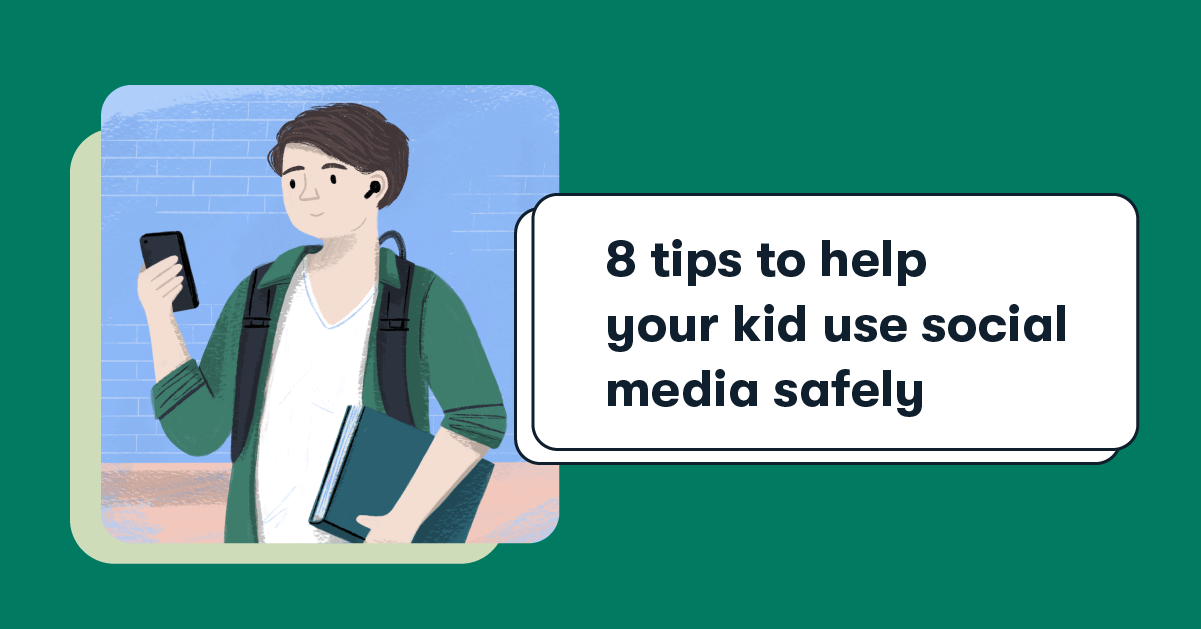8 tips to help your kid use social media safely

By Brightline team, Jun 21, 2023
Many caregivers are concerned about what their children might be exposed to online, which is understandable — there are a lot of unknowns. But, if your kid’s using social media, it’s impossible to shield them completely from the risks. That’s why it’s key to educate yourself and your kid about social media safety.
Give age-appropriate privacy.
If your child’s on the younger side, we recommend navigating social media with them. For teenagers, general guidelines allow more independence. But you know your child best — giving more privacy will require a certain level of trust that they’ll be able to make safe decisions.
It’s best to partner with them.
When you’re talking about safety, think of it more like a conversation than a presentation. You’ll want to fill them in on what you’re learning, but also ask them what they know. Do they have concerns? What’s working well? What’s making them feel anxious or nervous?
Start by acknowledging the good.
It can be really helpful to kick off the conversation by validating that they’re getting something out of these platforms (like connection or a creative outlet). Try something like, "I know it’s really important to stay connected with your friends, and that you get a lot out of using social media."
Then, acknowledge the risks.
You can continue with something like, "I won’t always be there with you to protect you when you’re online, so I just want you to know that there are these risks. Let’s talk about them together..."
Cover the basics.
Letting your kid know that people might be misleading them (on purpose) can help them keep their guard up. You can also ask, "What information do you think shouldn’t be shared online?" You’ll want to fill them in on basic safety "don’ts" for sharing, like their birth date, address, and current location.
Talk about what they share online.
Some kids don’t realize that the social media platforms own their posts and photos, or that things they share privately can be screenshotted and shown to others. While it sounds scary to say, it’s important to let your kid know that what they share privately isn’t always private. (You can also help them set up safer privacy settings.)
Teach kindness online.
Let them know that the same values of kindness and compassion your family has in real life also apply online. You can help them reflect on their online communication by asking something like, "Would you say the same things you say online if you were face-to-face with someone?"
Ask how it’s making them feel.
"How is what you see on social media making you feel? Good about yourself? Down on yourself? Inspired? Insecure?" Create an open conversation where you’re really curious and nonjudgmental about their emotional experience online so they can come to you when they need support.
Takeaway
Co-create a safety plan with your kid — talk specifically about what they’ll do if someone makes them feel uncomfortable or unsafe online (like telling you or another trusted adult, making their account private, or blocking someone). It’s best to have a solid plan in place, and then check in regularly.